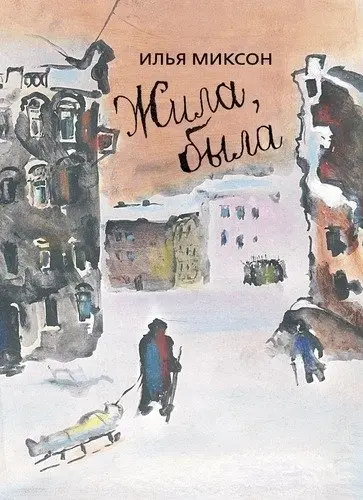
By Миксон Илья Львович
Она жила в Ленинграде, обычная девочка из большой семьи. Школа, родные, книги, друзья, походы в кино – её мир рухнул с началом войны. Враг окружил город, началась страшная блокада.
Эта документальная повесть повествует о Тане Савичевой и ленинградцах, переживших немыслимые ужасы блокадного Ленинграда. Книга пронизана болью и надеждой, воссоздавая атмосферу голода, холода и смерти, но и несломленного духа жителей города на Неве.
«Блокадный дневник девочки до сих пор волнует людей, он обжёг и моё сердце. Я решил рассказать о былом и отправился по следам горя, безмерных страданий, безвозвратных потерь. Мне удалось найти родственников, семейные фотографии, архивные документы, свидетелей тех событий. Я держал в руках вещи, хранившие тепло детских рук, сидел за партой в её классе, мог бы с закрытыми глазами пройтись по её дому и назвать все предметы. Порою казалось, что я рядом с той девочкой, в том блокадном, трагическом, непокорном городе. И мучило бессилие помочь, спасти. И вспомнилось пережитое лично... Никому не дано творить чудеса, ничто не изменить, не исправить в прошлом, но можно и должно предупредить и оградить будущее. Я расскажу, обязан рассказать. Итак, жила-была девочка. Звали её Таня Савичева».
«Во время блокады одни проявляли благородство, другие стали зверьми. Может быть, это детский острый взгляд. В очереди за хлебом нередко люди падали. В декабре 1941-го так упал мой отец, и у него украли карточки – он держал их в руке, потому что положить эту драгоценность в карман было нельзя. Мы остались без хлеба. Мама взяла меня за руку и повела к тёте. Тётя была военным врачом, 480-й особый сапёрный батальон. Мы шли через весь город, отдыхая по пути в пустых трамваях. Трамваи же остановились где попало. Когда мы пришли, мама сказала тёте: "Я хочу оставить вам Шурика, иначе он умрёт". Так я остался жив», — Александр Траугот.
She lived in Leningrad, an ordinary girl from a large, ordinary family. School, loved ones, books, friends, cinema – her world shattered with the outbreak of war. The enemy encircled the city, the horrific siege began.
This documentary novel recounts the story of Tanya Savicheva and the Leningraders who endured unimaginable horrors during the siege. The book is infused with pain and hope, recreating the atmosphere of hunger, cold, and death, but also the unyielding spirit of the city's inhabitants.
“The girl's diary from the siege continues to move people; it burned my heart as well. I decided to recount the past and followed the trail of grief, immeasurable suffering, and irretrievable losses. I managed to find relatives, family photographs, archival documents, and witnesses to those events. I held in my hands objects that bore the touch of a child's hands, sat at her desk in her classroom, and could have walked through her former home with my eyes closed and named every object. At times it felt like I was right there with that girl, in that besieged, tragic, defiant city. And the powerlessness to help, to save, was agonizing. And I remembered my own experiences... No one can work miracles, nothing can be changed or undone in the past, but we can and must prevent and protect the future. I will tell, I must tell. So, there once was a girl. Her name was Tanya Savicheva.”
“During the siege, some showed nobility, others became beasts. Perhaps it’s a child's sharp perspective. People often fell in the bread lines. In December 1941, my father fell, and his ration cards were stolen – he held them in his hand because putting such a precious thing in his pocket was impossible. We were left without bread. My mother took my hand and led me to my aunt. My aunt was a military doctor in the 480th Special Sapper Battalion. We walked across the entire city, resting along the way in empty trams. The trams had simply stopped wherever they happened to be. When we arrived, my mother said to my aunt: "I want to leave Shurik with you, otherwise he will die." That's how I survived,” — Alexander Traugot.